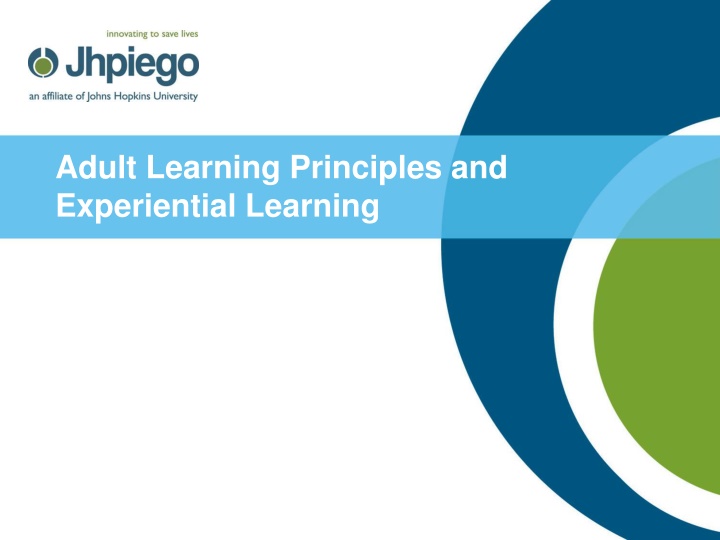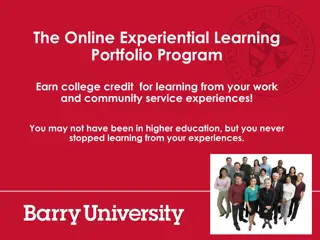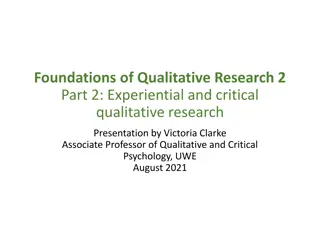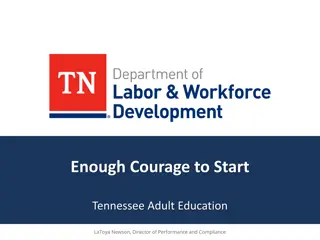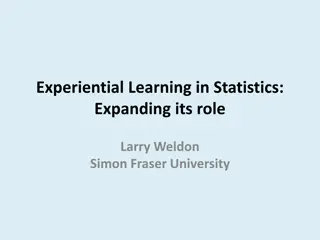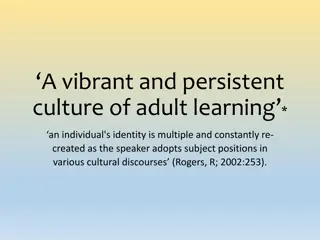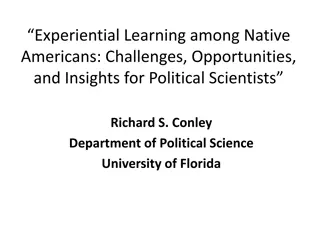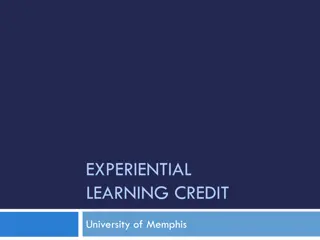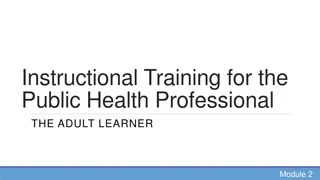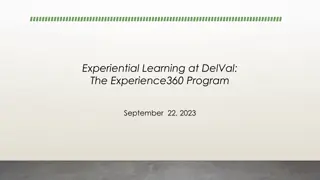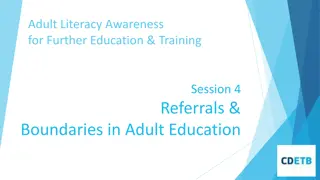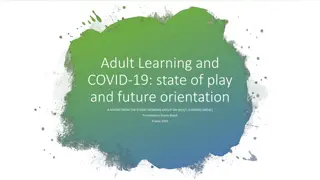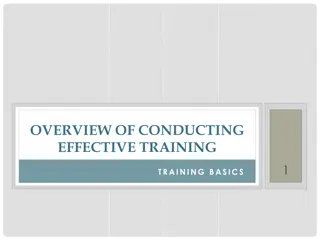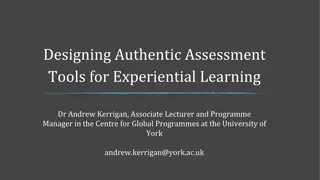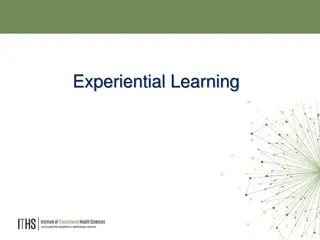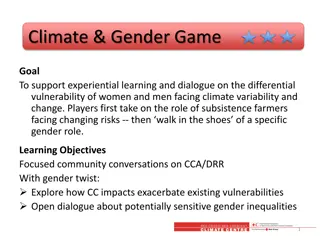Adult Learning Principles and Experiential Learning Overview
Understand the key principles of adult learning and the importance of experiential learning. Explore how adults learn best, their characteristics, and the benefits of experiential learning approaches. Gain insights into creating effective learning environments for adult learners.
Download Presentation

Please find below an Image/Link to download the presentation.
The content on the website is provided AS IS for your information and personal use only. It may not be sold, licensed, or shared on other websites without obtaining consent from the author.If you encounter any issues during the download, it is possible that the publisher has removed the file from their server.
You are allowed to download the files provided on this website for personal or commercial use, subject to the condition that they are used lawfully. All files are the property of their respective owners.
The content on the website is provided AS IS for your information and personal use only. It may not be sold, licensed, or shared on other websites without obtaining consent from the author.
E N D
Presentation Transcript
Adult Learning Principles and Experiential Learning
Objective By the end of this session the learners will be able to: List key features of adult learning principles, experiential and participatory learning approaches 2
Adult Learning Principles Adults have vast knowledge and experience Routine training/teaching ineffective Key principles of adult learning are: Learners want to learn Are aware of what they need to learn New knowledge, skills and attitudes build on what learners already know or have experienced Are active and participate in the learning 3
Adult Learning Principles (contd.) New knowledge, skills and attitudes are realistic, relevant and can be put to use immediately Get an opportunity to practice ideas and skills and receive feedback on performance Feedback to learners is immediate, constructive and non- judgmental Mutual respect between trainers and learners Learners are respected for their previous experiences 4
Characteristics of Adult Learners High expectations Need a positive learning environment Motivated if they believe learning is relevant Desire variety in learning methods and techniques, and to participate and be actively involved Appreciate when learning builds on what they already know or have experienced Require ample opportunity for practicing skills Must maintain their self esteem Have personal needs and concerns that must be considered 5
Experiential Learning Experie nce Observa tion and Reflecti on Testing in new situation Experiential Learning Forming Concept s 6
